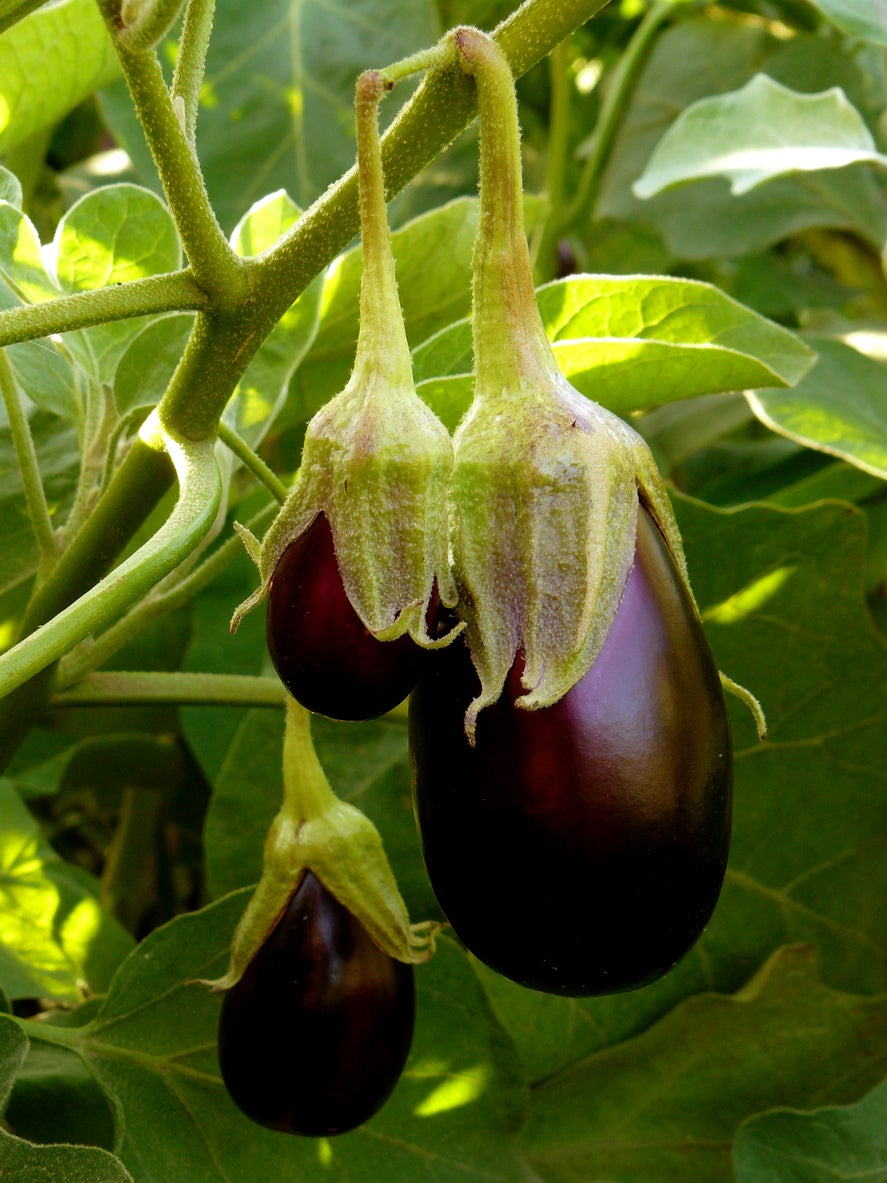Eggplant Feeding Guide – Learn How To Fertilize Eggplants


Sign up for the Gardening Know How newsletter today and receive a free copy of our e-book "How to Grow Delicious Tomatoes".
You are now subscribed
Your newsletter sign-up was successful
If you're looking to harvest larger yields of eggplant, fertilizer may help. Plants use energy from the sun and nutrients from the soil for growth and food production. Some garden vegetables, like peas and beans, need fewer added nutrients. Others, like eggplants, are considered heavy feeders.
How to Fertilize Eggplants
Eggplants grow best in a compost-rich, fertile soil under full sun. Feeding eggplants during their growing and fruiting stages improves the overall health of the plant. Healthy plants produce larger fruit in greater quantities. In addition, when growing some varieties of eggplant, fertilizer may reduce bitterness caused by plant stress.
Many gardeners begin the growing season by incorporating compost and fertilizer into the garden soil prior to planting. This gives young eggplants a boost of nutrients for a healthy start. Having garden soil tested takes the guesswork out of how much and what type of fertilizer to use.
Soil testing provides an NPK analysis, which tells gardeners how much nitrogen, phosphorus, and potassium is needed to balance and amend their garden soil. Plants use nitrogen for green growth and the construction of chlorophyll. Phosphorus benefits the formation of new roots and is used in flower, fruit, and seed production. Potassium contributes to stem strength, disease resistance, and growth.
Periodic eggplant feeding during the growing season also helps these heavy feeders with setting and producing fruit. A balanced fertilizer (10-10-10) is often recommended for eggplant. Feeding too much nitrogen at this point can result in large, leafy plants that fail to produce fruit.
Types of Eggplant Fertilizer
Fertilizers can be chemically manufactured or come from natural sources such as plant matter, animal manures, or minerals found in rock. Some gardeners prefer bagged fertilizers since the NPK rating is listed on the label. Aged manures, leaves, grass clippings, and compost from one's own backyard or from neighboring properties can be obtained for free, but lack a guaranteed NPK analysis. This material can be worked into soil or used as a mulch.
Powdered, pelleted, or granular fertilizers can be applied as a side dressing between rows or to soil at the base of the eggplant. Fertilizer applied in this manner should be worked into the dirt to prevent heavy precipitation from splashing fertilizer onto the plant.
Sign up for the Gardening Know How newsletter today and receive a free copy of our e-book "How to Grow Delicious Tomatoes".
Since plants can absorb nutrients through their leaves, foliar feeding eggplants is an alternative method for fertilizing. Eggplants that are underperforming are the best candidates. Use a commercial liquid fertilizer designed for foliar feeding or make your own from diluted manure tea. Apply this liquid as a fine spray, early in the morning when ambient temperatures are cool.
Finally, when in doubt about how to fertilize eggplants, gardeners can't go wrong when choosing a quality tomato fertilizer. Like tomatoes, eggplants are also members of the nightshade family and have similar nutritional needs. Of course, feeding eggplants can create a problem – it can make you the envy of all your eggplant loving friends!

Laura Miller has been gardening all her life. Holding a degree in Biology, Nutrition, and Agriculture, Laura's area of expertise is vegetables, herbs, and all things edible. She lives in Ohio.